Posts tagged with "contextual learning"
The Russian Vocabulary Black Box: How to Unlock Passive Words for Active Storytelling (A2-B1)
You recognize 1,000 Russian words, but only write with 100. We reveal the critical difference between passive recognition and active production memory, and the 4-step cycle to bridge the gap.
The Invisible Errors Killing Your A1 French Writing (And How to Get Instant, Contextual Feedback)
You've moved past basic phrases, but your writing is stuck. Learn why A1 French errors are invisible to you, and discover the crucial feedback loop needed to achieve active production.
The Finnish ‘Case Fog’: Why You Know the Rules But Still Write 'Pöytä' Wrong
Finnish cases are easy on a chart but impossible in a sentence. This guide reveals the 4-step Contextual Production Cycle to bridge the A2 knowledge gap and force correct case application in your writing.
The Armenian Vocabulary Depth Charge: Why B1 Words Fail in Writing (And the 4-Step Fix)
B1 Armenian learners know the words, but they lack the 'depth' to use them fluently. Discover the 4-step cycle to turn passive recognition into powerful, active writing and break the intermediate plateau.

The B1 Ukrainian Content Trap: Why You Can Read Fine, But Your Writing Is Stuck in A2
You know thousands of Ukrainian words, but they vanish when you try to write. Discover the core reason for the B1 production gap and the 4-step cycle to break through it.

The French 'Vocabulary Black Hole': Why Your A1 Words Vanish When You Start to Write ✍️
You know the French words when you read them, but they disappear when you try to produce a sentence. Discover the simple, active production technique that locks new vocabulary into your long-term memory.

The Armenian B1 Context Crisis: Why You Know the Words But Can't Build the Story
B1 Armenian learners often hit a wall because they consume passive information without activating production skills. Discover the critical cycle of personalized context and forced output needed for fluency.

The Latvian Vocabulary 'Desert': Why Your A1 Words Vanish Between the Flashcard and the Sentence 🌵
You know 'suns' and 'māja,' but they disappear when you try to write. Learn the 'contextual location' trick to move Latvian vocabulary from passive memory to active, instant recall.

The B1 Spanish Recall Switch: How to Unlock Passive Vocabulary for Fluent Writing and Storytelling
You recognize every word you read, but your mind freezes when you need to write or speak. This is the B1 production paradox. Learn the active cycle that forces vocabulary recall.
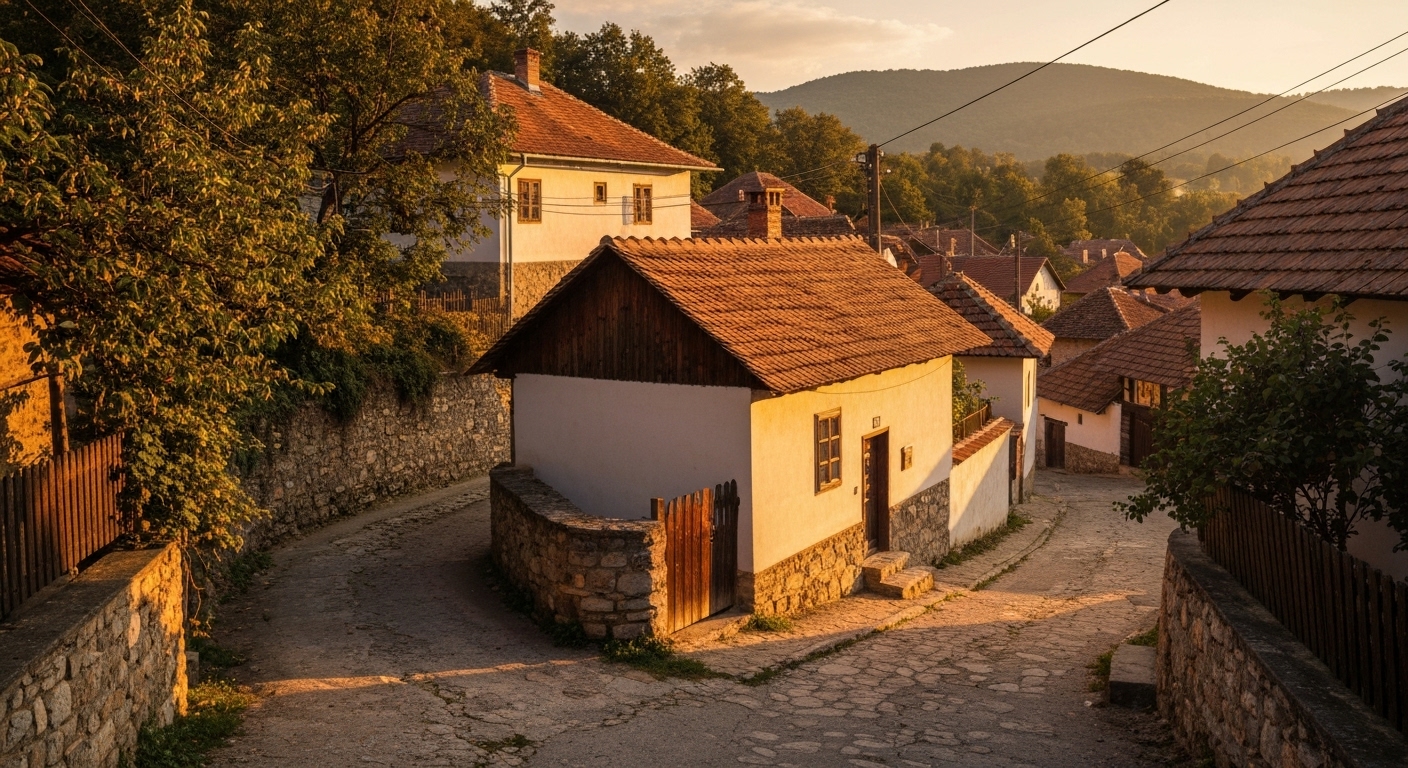
The Two Serbian 'Cameras': How Perfective and Imperfective Verbs Turn Facts into Stories
If your B1 Serbian writing feels flat, you're missing the 'storytelling switch.' Learn the essential mental model for verbal aspect and start building vivid narratives, not just bare lists.

The German Vocabulary Black Hole: Why You Know 1,000 Words But Can't Write 10 Fluent Sentences
You recognize every word you read, but when you try to write, your mind goes blank. This A2 German phenomenon is common. Discover the 4-step cycle to turn passive vocabulary into active, confident writing skills.

The A1 Czech Writing Barrier: Why Your Vocabulary Hides When You Need It Most (And The 4-Step Production Fix)
You recognize hundreds of Czech words when reading, but they vanish when you try to write a simple paragraph. This is the A1 production gap-here is how to bridge it.

The Portuguese Context Conundrum: Why Your Vocabulary Is Passive (And How to Force It Into Production)
You recognize thousands of Portuguese words, but struggle to write a single fluent paragraph. We diagnose the passive vocabulary trap and introduce the three-step production cycle that bridges the A2 reading-writing gap.

The Swedish ‘Partikelverb’ Paradox: Why You Know the Words, But Can't Use Them in Sentences
Are you freezing up when writing Swedish? A2 learners often hit a wall due to compound verbs (partikelverb) and fixed expressions. Learn the contextual recall strategy to unlock active use.

The Italian Vocabulary Blackout: Why Words Vanish When You Start to Write ✍️
You know hundreds of Italian words when you read them, but they disappear when you need them most. Discover the psychological trap of passive vocabulary and the simple, active cycle that unlocks writing fluency.

The Missing 3rd Step: Why B1 Italian Readers Struggle to Write (And The Story Retelling Fix)
You understand Italian novels, but freeze when writing a simple email. Discover the essential bridge between passive reading and active production that B1 learners miss.

The Lithuanian Vocabulary Amnesia: Why You Forget Words When You Need Them Most
You know the words, but when you try to write, they vanish. Discover the 'Passive Trap' of A2 Lithuanian learning and the three-step cycle to unlock instant vocabulary recall.
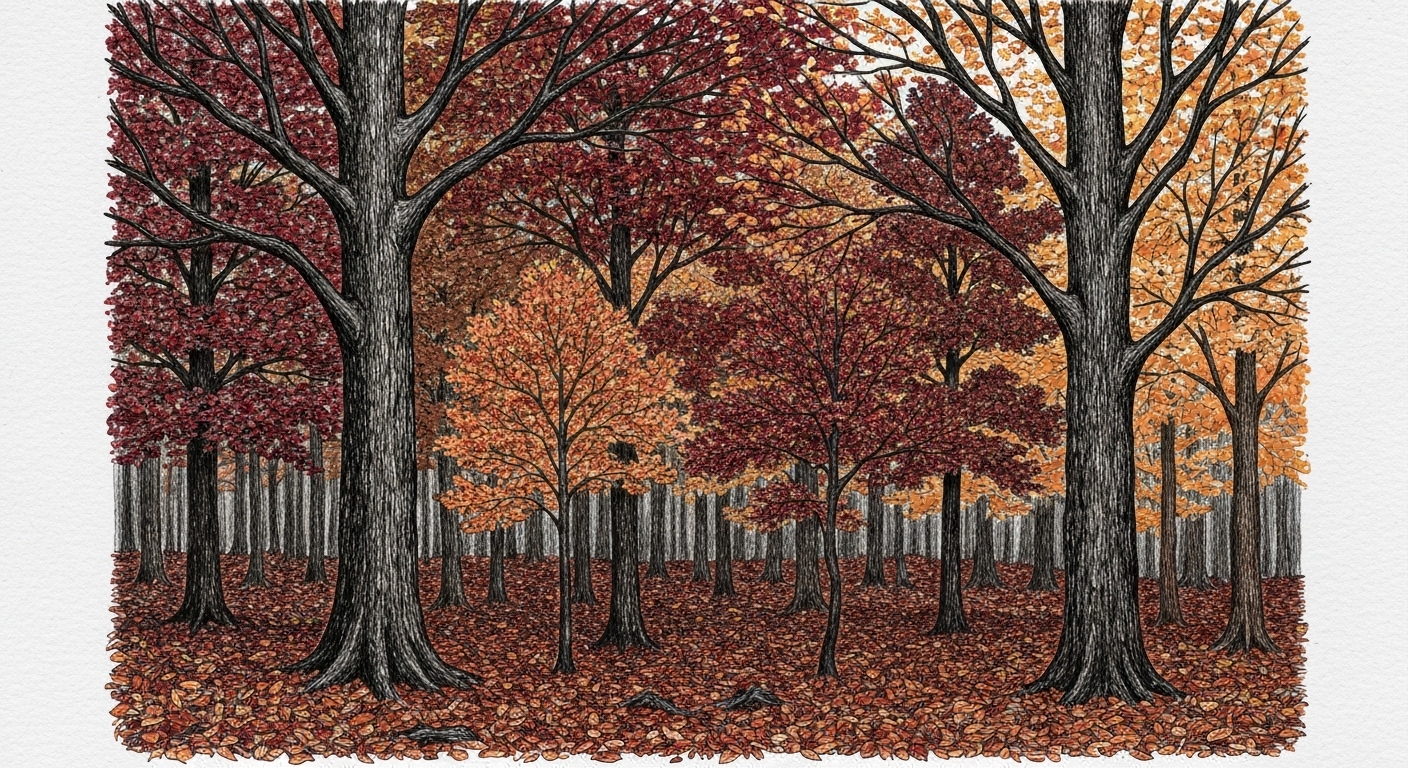
The Serbian Writing Gauntlet: How to Get Instant, Granular Feedback on Errors Your Brain Can't See
You understand B2 Serbian, but writing feels stiff. The problem isn't knowledge-it's a lack of targeted, instant feedback. Discover the 3-step cycle to turn passive knowledge into active, fluent production.

The Contextual Trap: Why Your Luxembourgish Vocabulary Won't Leave the Page 📖
B1 learners of Luxembourgish often recognize words but fail to use them actively. We reveal the three reasons why passive learning is insufficient and introduce the active cycle that guarantees production fluency.

The B2 Ukrainian Production Crisis: Why You Understand Books But Struggle to Write a Single Fluent Paragraph
You read Ukrainian well, but output lags behind. This post diagnoses the B2 'passive knowledge' wall and introduces the 5-step active production cycle proven to bridge the comprehension-writing gap.

The Armenian Vocabulary Mirage: Why You Know 5,000 Words But Only Use 500 in Writing ✍️
B2 learners of Armenian face a unique challenge: recognizing high-level vocabulary is easy, but activating it for fluent writing is nearly impossible. Learn the Contextual Cycle to break free.
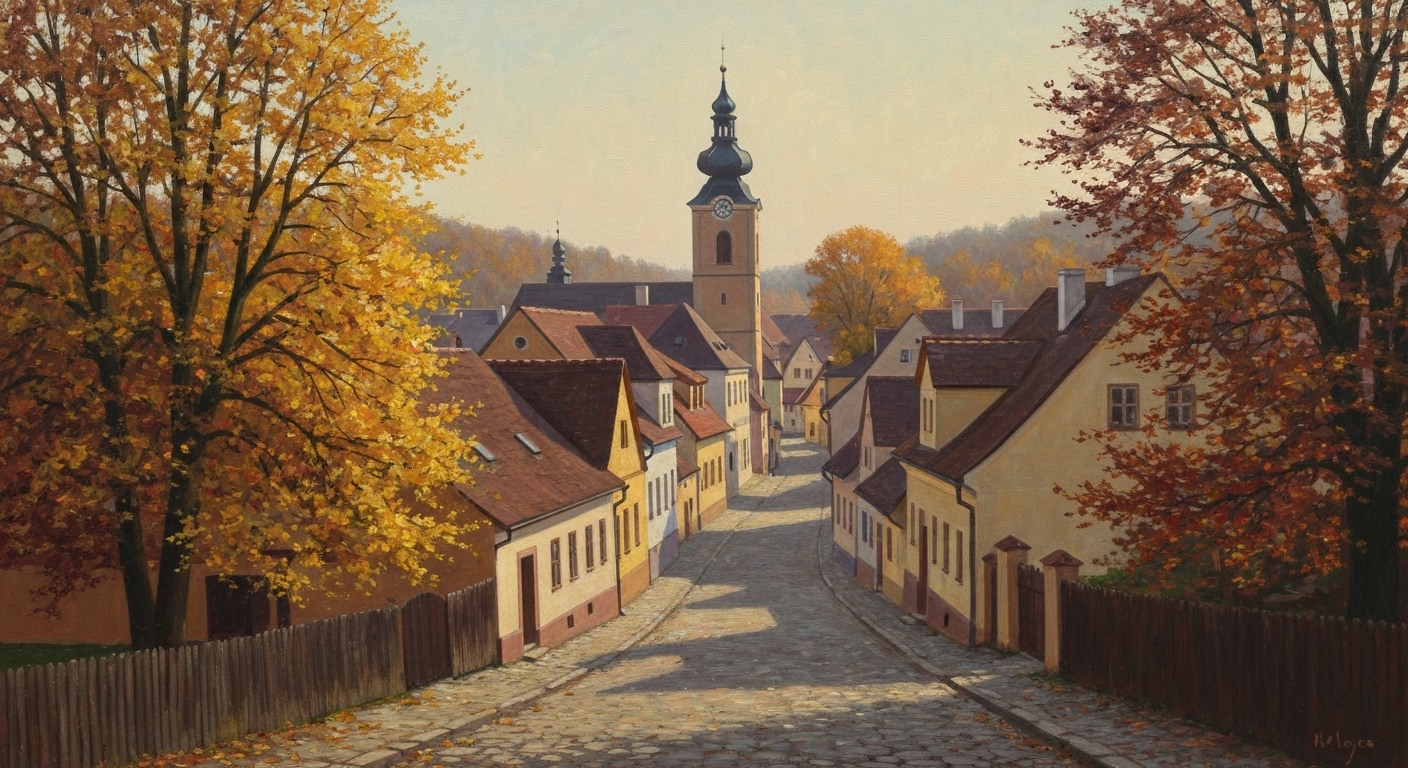
The B2 Czech Gap: Why You Understand Every Story But Can’t Write a Paragraph 🤯
B2 Czech learners often hit a plateau where reading is easy, but writing feels impossible. We explain the 'Passive Knowledge Trap' and introduce the single most effective method-Story Retelling-to unlock fluent production.

From List to Legend: The B1 Luxembourgish Guide to Weaving Fluent Stories
You know enough Luxembourgish words to tell a story, but why does it sound like a list of facts? Master the connectors and word order tricks that turn choppy sentences into native narrative flow.

The Grammar Shadow: Why Your Latvian Words Feel Invisible (And How to See Them)
You've memorized hundreds of Latvian words, but can't use them in a sentence. Discover the 'Grammar Shadow' that flashcards hide and the method to make your vocabulary truly usable.
The 'Job Description' of Every Finnish Word: A Guide to Cases Without Charts
Stop memorizing 15 case endings. Discover the simple mental model that unlocks Finnish sentence structure and see why context is the only way to truly master it.

Your Russian Sentences Are Simple Chains. Here's How to Weave a Complex Tapestry.
Stuck writing short, choppy Russian sentences? Discover the two grammatical tools natives use to combine ideas and create elegant, flowing prose. This is your B2-to-C1 upgrade.

The Luxembourgish 'Sentence Sandwich': A B1 Learner's Guide to Connecting Your Ideas
Tired of short, choppy sentences in Luxembourgish? Learn the 'sentence sandwich' method to connect your ideas with confidence using main and subordinate clauses. From V2 to verb-kickers, this is your guide.
The Serbian 'Snapshot' vs. 'Video' Trick: A B1 Learner's Guide to `Kada` and `Dok`
Stop guessing between `kada` and `dok`. Learn the simple 'camera' method to master Serbian timelines and make your sentences flow naturally. This is the B1 tip you've been missing.

Your Latvian Vocabulary is a Museum of 'Almost' Known Words. Here's How to Use Them.
You recognize hundreds of Latvian words when you read, but can't recall them when you write. Discover the 3-step cycle to turn your passive vocabulary museum into an active workshop.

Your Armenian Mind is a Dictionary. Here's How to Become a Movie Director.
Struggling to turn your Armenian vocabulary into actual sentences? Learn the 'Scene-First' method to stop building with grammar rules and start directing stories.

Your German Is a Series of Facts. Here's How to Build a World.
Stuck writing simple German sentences? Learn how to use adverbs, descriptive adjectives, and complex clauses to transform your writing from a flat report into a vibrant world.

Your Czech Is Stuck on 'Dívat se'. Here Are the 3 Other 'Looks' You Need.
Stop saying 'dívat se' for everything. Master the subtle but crucial differences between `vidět`, `podívat se`, and `koukat se` to make your Czech sound natural and precise.
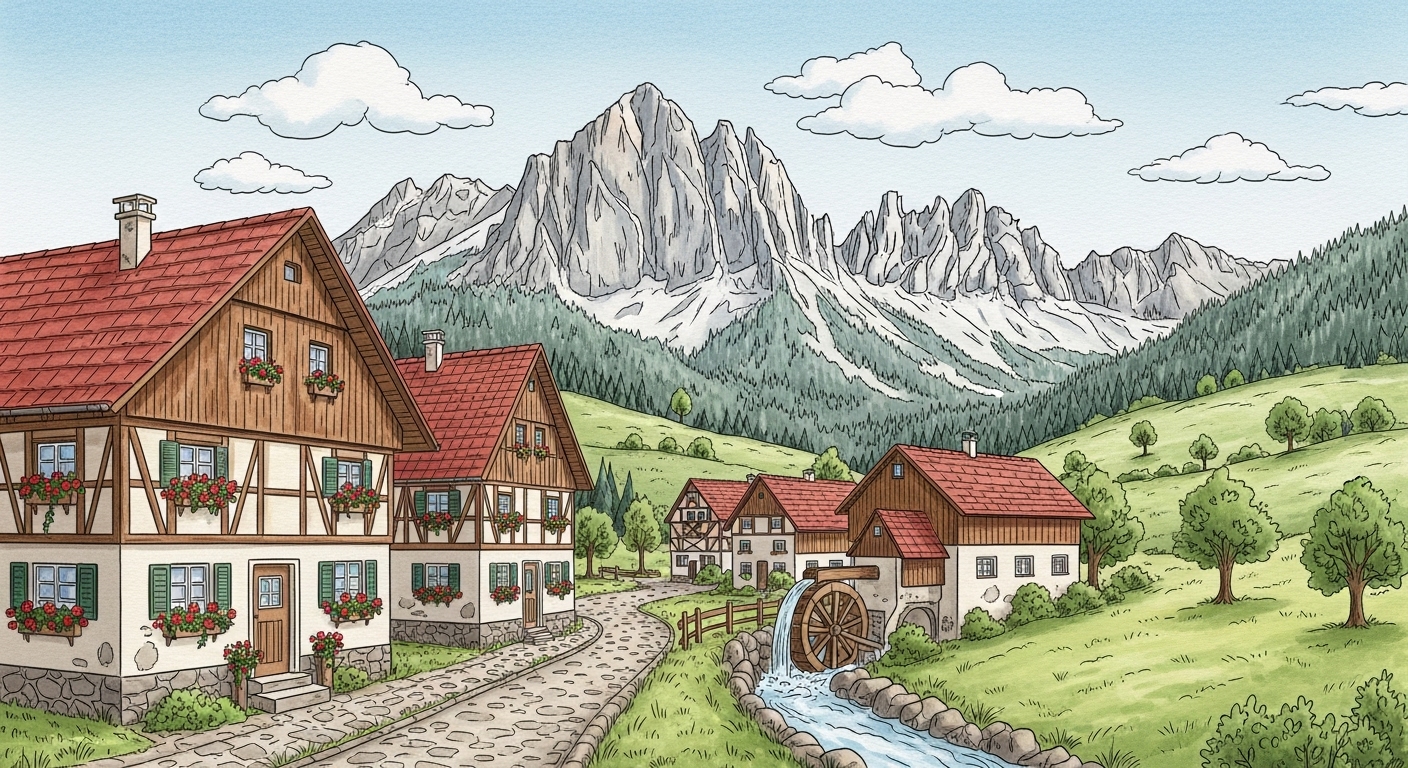
The German Adjective’s Secret Job: Listening for Signals from ‘der,’ ‘die,’ ‘das’
Stop memorizing German adjective ending charts. Learn the simple 'signal' system that native speakers use intuitively, and see how to make it second nature.

Why Your Latvian Flashcards Are Failing You (And the Context Cycle That Works)
Stuck at the B1 level in Latvian? Discover why rote memorization fails and how learning words in stories is the key to true recall and fluency. A new method for serious learners.
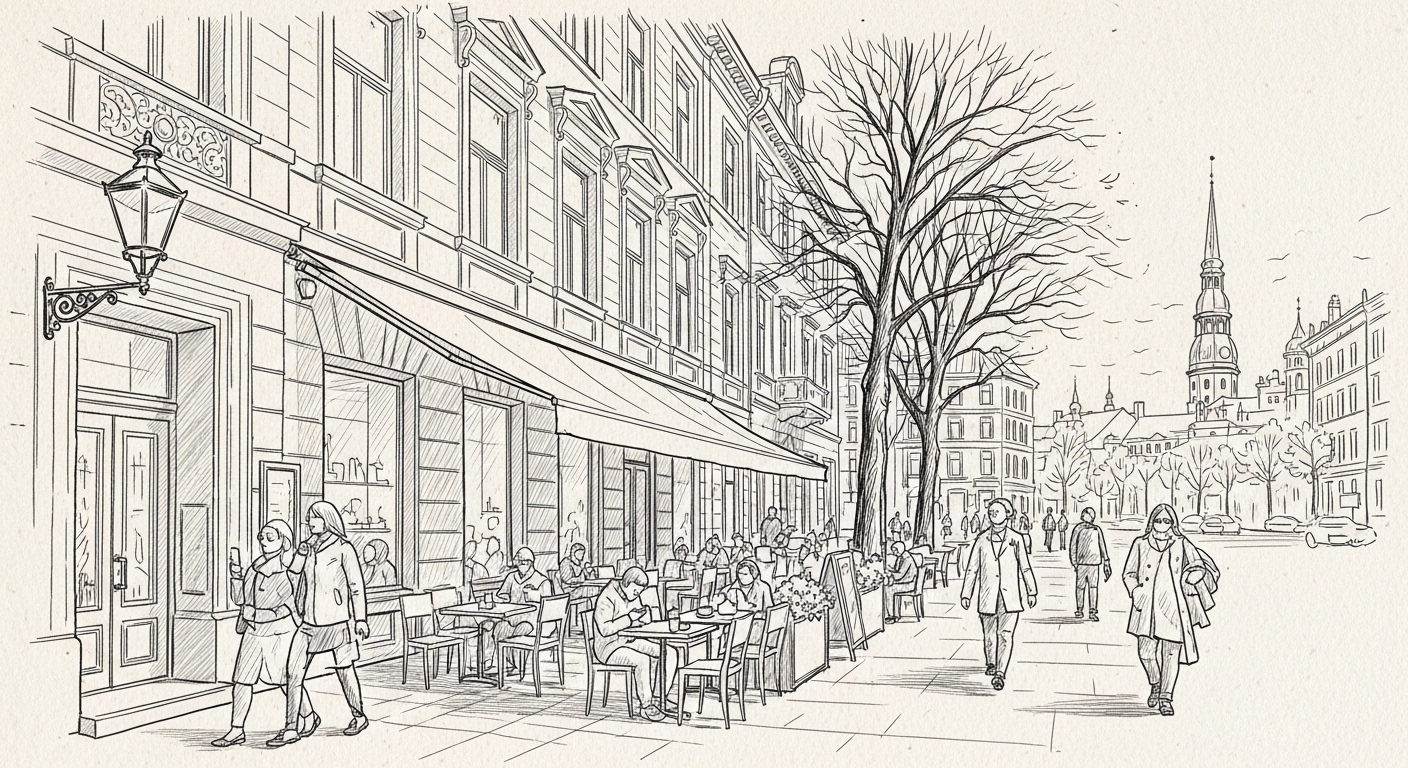
The Boss Verb: Why Your Latvian Nouns Don't Know How to Behave (And How to Give Them Orders)
Stop guessing which case to use in Latvian. Learn the secret 'commands' that verbs give to nouns and transform your clunky sentences into confident, natural-sounding ones.

Your German Is Stuck on 'Gehen' and 'Sagen'. Here's Your B1 Verb Upgrade.
Tired of your German sounding like a textbook? Learn how to replace basic verbs with vivid alternatives and transform your writing from flat to fluent. This is your A2 to B1 upgrade.

The Russian Case You Use Every Day (But Probably Get Wrong): A Guide to the Genitive
Stop guessing Russian endings. This guide unpacks the Genitive case—the key to talking about possession and absence—with a simple method to finally master it.

The Reading-Writing Gap: Why You Understand English But Can't Write It (And the Cycle to Fix It)
Feel like your English comprehension is miles ahead of your writing skills? You're not alone. Discover the 3-step active learning cycle to bridge the gap and start writing with confidence.
Your Armenian Vocabulary is a Box of Photos. Here's How to Create the Album.
You know hundreds of Armenian words, but can't connect them. Discover why decontextualized learning fails and how to weave your vocabulary into a compelling story.
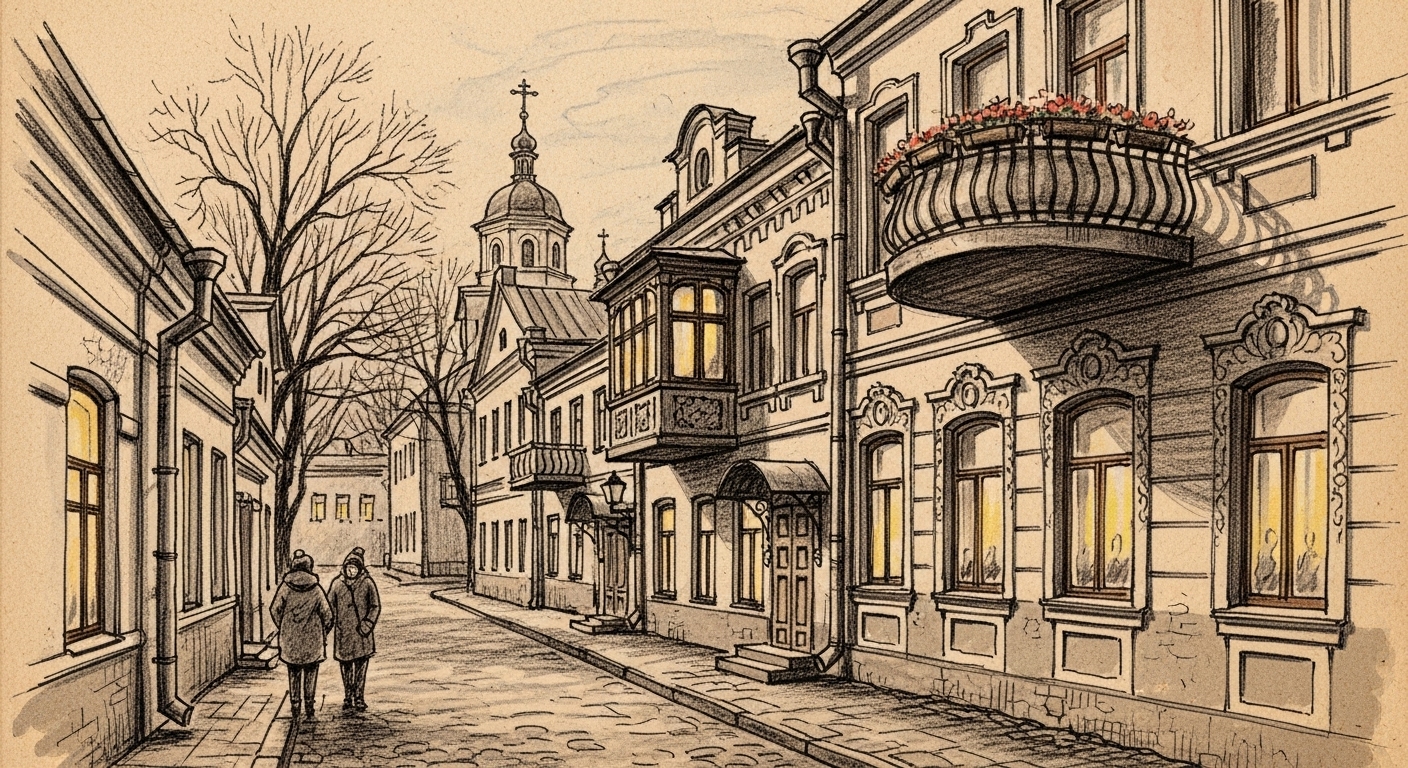
The Grammar Ghosts Haunting Your Ukrainian Writing (And How to Banish Them)
Know the grammar rules but still make mistakes? Discover why your Ukrainian writing feels haunted by errors and learn a practical method to turn passive knowledge into active skill.
Your Russian Describes Places, Not Ideas. Here's the Prepositional Case 'Key' (`О`)
Stuck describing where things are? Learn how the Russian preposition 'о' unlocks the ability to discuss topics, share opinions, and tell stories. It's the B1 leap you've been missing.
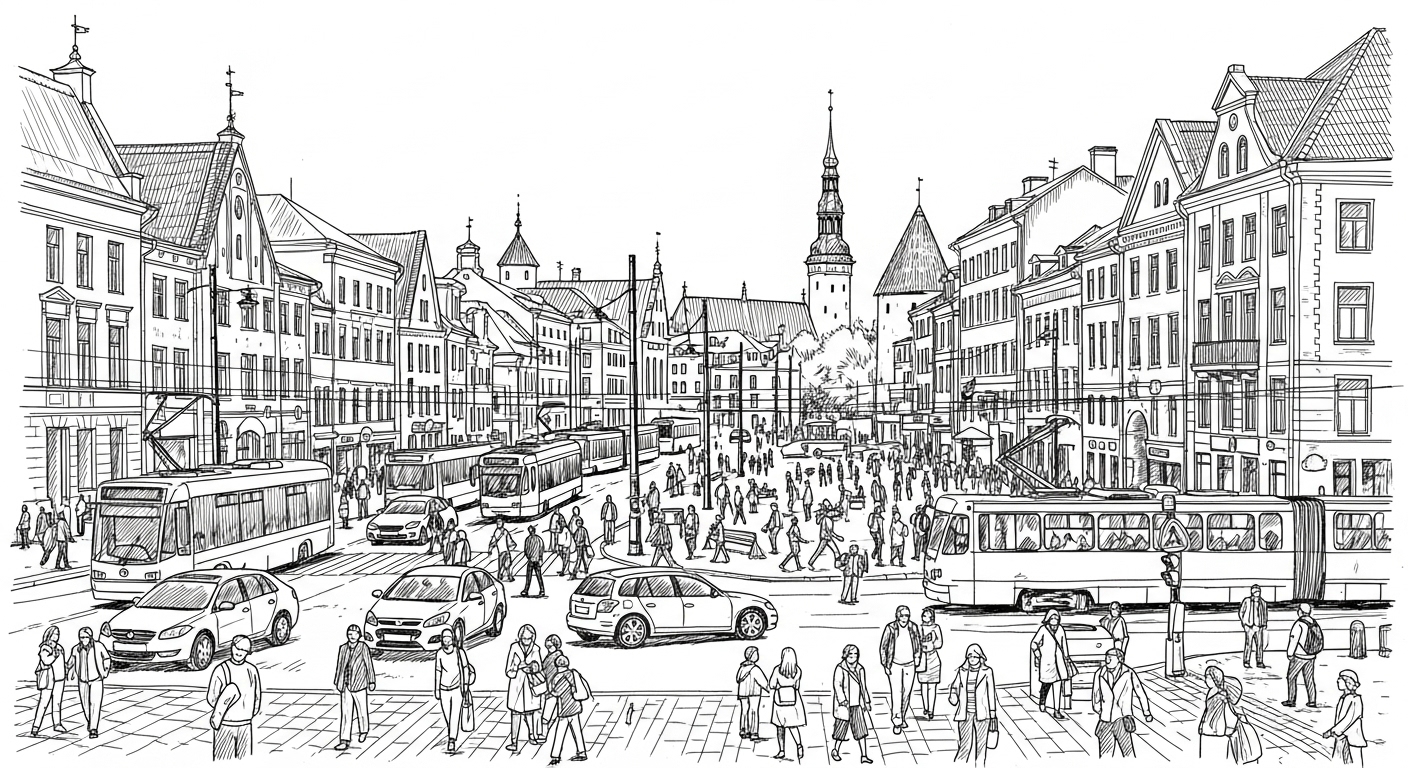
Why Your Estonian Vocabulary is a Pile of Bricks (And How to Build a House)
You've memorized hundreds of Estonian words but can't form a sentence. Discover why flashcards fail and how the 'context cycle' is the key to building real fluency.
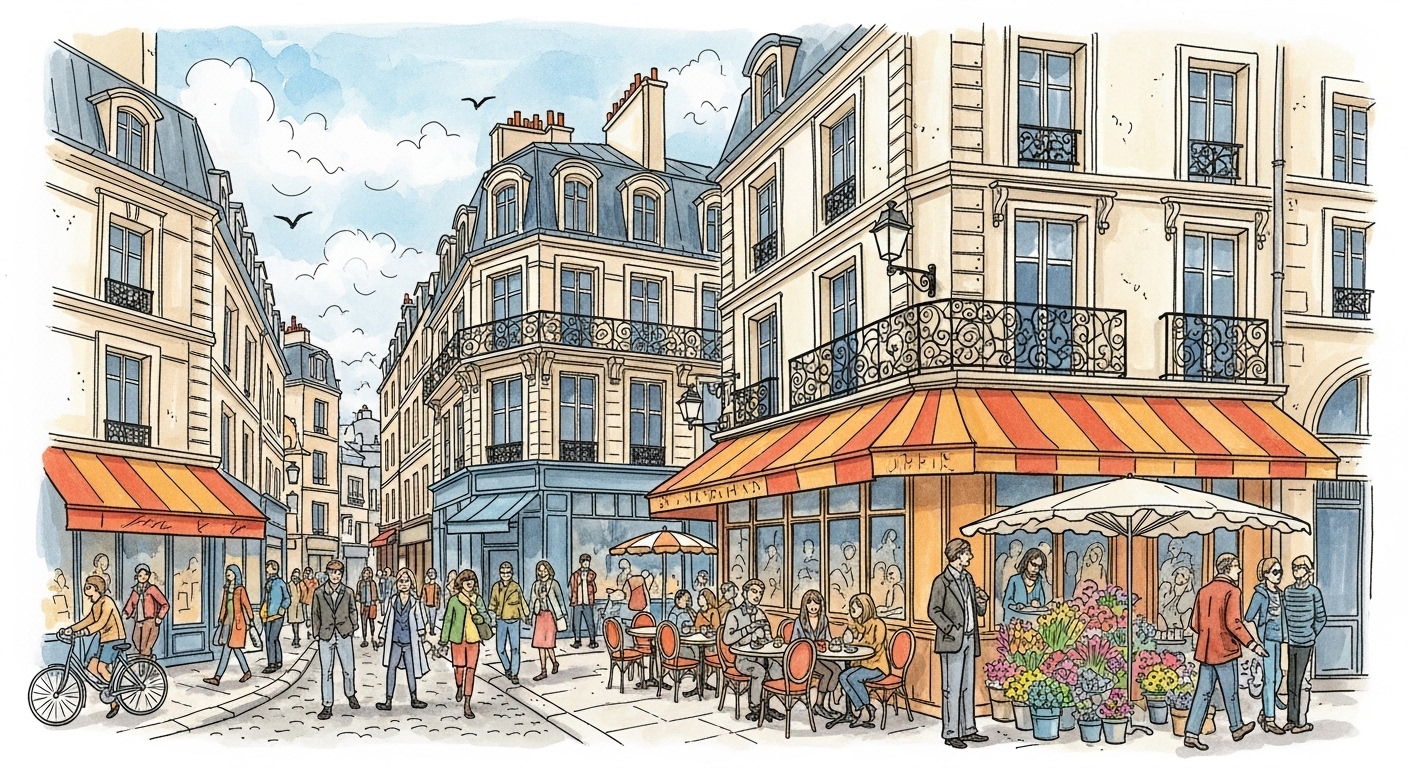
Your French Is Stuck on 'Faire' and 'Dire'. Here's Your B2 Verb Upgrade.
Tired of your French sounding correct but flat? Discover how to replace common 'crutch' verbs with vivid alternatives to make your writing come alive and sound more native.

Your Czech Vocabulary Is a Box of Hammers. Here's the Full Toolbox.
Tired of using the same basic Czech words? Learn how to upgrade your vocabulary from functional to fluent and start writing with color, nuance, and confidence.

Your Portuguese Is a To-Do List. Here's How to Write a Story.
Stuck using the same basic Portuguese verbs like 'ter', 'ir', and 'fazer'? Learn how to replace them with vivid alternatives to make your writing and speaking come alive.

Your Spanish Is a Wikipedia Article. Here’s How to Write a Novel.
Tired of your Spanish sounding correct but flat? Learn how to upgrade your verbs, adverbs, and connectors to transform your writing from a dry report into a compelling story.

The Domino Effect: Why Your First Lithuanian Sentences Are Breaking (And How to Fix Them)
Stop memorizing word lists. Discover the 'Domino Effect' of Lithuanian grammar where one word choice triggers a chain reaction. Learn the mental model to finally build sentences that work.
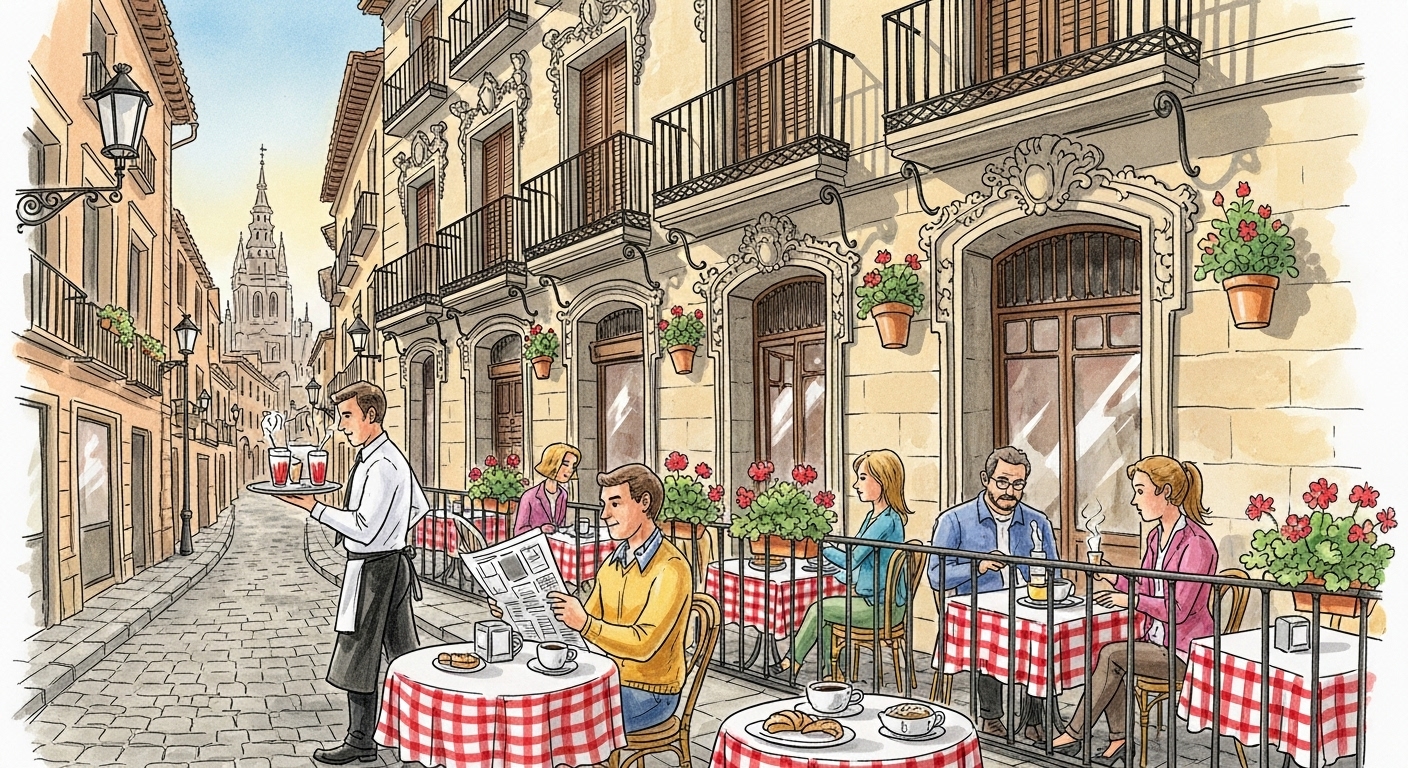
The Spanish Vocabulary Mirage: Why You Know 2,000 Words But Only Use 200
Feeling stuck at the B2 level? Discover why your active Spanish vocabulary is a fraction of what you can read, and learn a powerful cycle to finally own the words you learn.

Your Russian Verbs Are Stuck on Repeat. Here's How to Unlock 100s of New Meanings with Prefixes.
Tired of using the same basic Russian verbs? Discover how prefixes can instantly expand your vocabulary and make your writing more nuanced. A practical guide for B2 learners.

Your Latvian Sentences Know *What*, But Not *Where*: A Beginner's Guide to Location vs. Destination
Stuck between 'parkā' and 'parku'? This guide breaks down the simple 'location vs. destination' mindset that unlocks correct Latvian sentences for A1 learners.

Your Latvian Is Correct, But Does It Have a Soul? A Guide to Writing with Flavor
Move beyond grammatically correct sentences. Learn how to use nuanced verbs, adverbs, and participles to give your Latvian writing the flavor and flow of a native speaker.

From 'Knowing' to 'Owning': The Secret to Mastering Estonian Vocabulary
You recognize hundreds of Estonian words but can't use them. Discover the 4 stages of word ownership and the method to move from passive knowledge to active fluency.

Your Portuguese Has the Right Words, But the Wrong Flavor. Here's How to Add Nuance.
Stop using 'dizer' for everything. Learn the difference between 'falar', 'contar', and 'sussurrar' to make your Portuguese writing sound less like a textbook and more like a native.
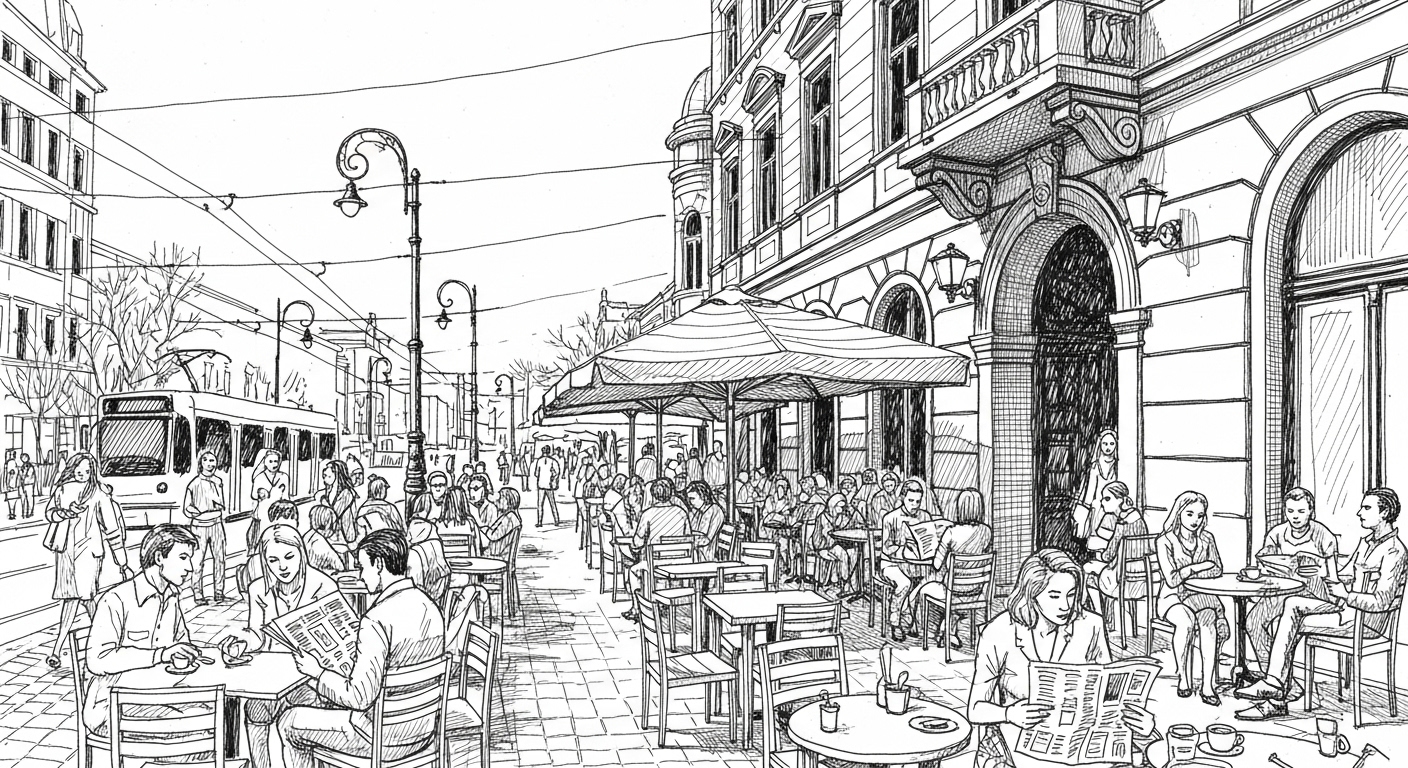
The `Znati` vs. `Poznavati` Dilemma: A Guide to the Serbian ‘Knowing’ Problem You Can’t Solve with Flashcards
Struggling with when to use `znati` and `poznavati` in Serbian? You're not alone. Discover the mental model that makes it click and a practice loop to finally master this nuance.

Your Estonian Describes What Happens. Here’s How to Describe *How* It Happens.
Move beyond simple statements. Learn the secrets of Estonian adverbs and cases to make your writing more descriptive and vivid. It's easier than you think.

The Spanish Synonym Trap: How to Choose the Right Word Every Time
Stop mixing up `saber` vs. `conocer` or `pedir` vs. `preguntar`. This guide reveals why you make these subtle mistakes and how to develop native-like precision in your Spanish word choice.
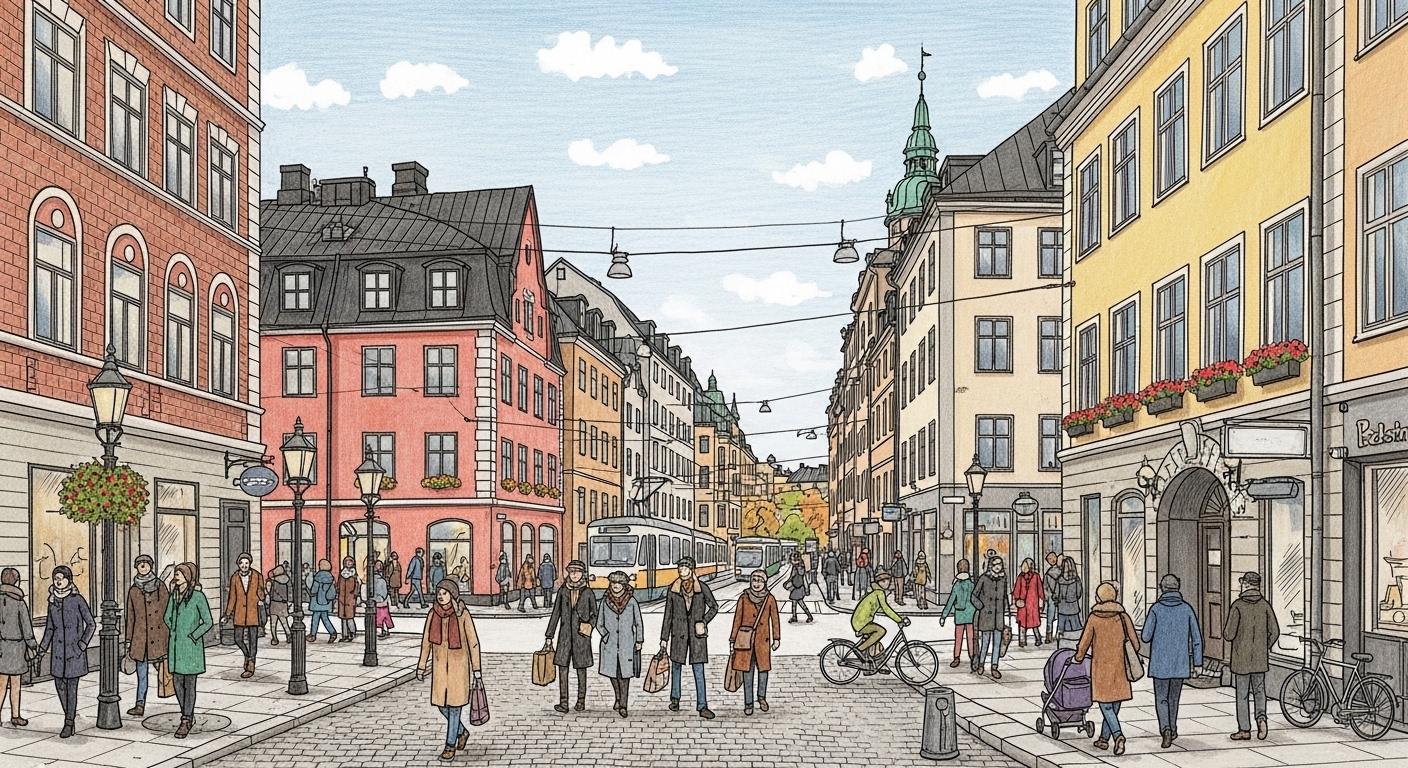
Your Swedish Vocabulary Is a Box of Unconnected Dots. Here's How to Draw the Picture.
Know lots of Swedish words but can't form a sentence? This is the A1 barrier. Learn a simple, practical method to connect the dots and start writing your first simple stories today.

Your Russian Sentences Are Islands. Here's How to Build the Bridges.
Tired of writing short, robotic Russian sentences? Learn the simple 'bridge-building' techniques using conjunctions and connectors to write with natural flow.
Your German Nouns Have a Wardrobe Crisis: A Practical Guide to Dressing Them with Adjectives
Stop guessing German adjective endings. Learn a simple 'wardrobe' system to make your descriptions accurate and colorful, and discover how to get instant feedback on your writing.

The Swedish Adjective ‘Closet’: Why Your Words Don't Match (And How to Fix It)
Struggling with 'en röd bil' vs. 'det röda huset'? This guide decodes Swedish adjective agreement so your words finally match. Stop guessing and start writing with confidence.

The Flashcard Fallacy: Why You Know 500 Luxembourgish Words But Can't Speak a Sentence
Stop memorizing isolated words. Discover a 3-step cycle to move from passive recognition to active fluency in Luxembourgish and truly own your vocabulary.

The Flashcard Graveyard: Why Your Lithuanian Words Die (And How to Revive Them)
Stop memorizing isolated Lithuanian words that you can't use. Discover a story-based cycle that moves vocabulary from your memory to your actual sentences.

Your Serbian Is a Monologue. Here's How to Start a Conversation.
You know the grammar, but real Serbian conversations feel stiff? Learn the art of 'code-switching' between formal, informal, and neutral language to sound truly natural.

You've Learned 100 Ukrainian Words. Here's How to Actually *Own* Them.
Stop the flashcard cycle. Learn why recognizing a word isn't enough and discover a 4-step method to use Ukrainian words with confidence in your own sentences.

Your Armenian Is Correct, But Is It Alive? A Guide to Writing with Nuance
Move beyond robotic sentences. Learn how word order and subtle phrasing can add emotion and emphasis to your Armenian writing, and discover the tools to practice effectively.

The Two Little Czech Words That Change Everything: Your Guide to `se` and `si`
Confused by Czech reflexive verbs like `učit se` or `myslet si`? This guide breaks down `se` and `si` with a simple method to finally master them in context.
Your Luxembourgish Vocabulary Is a List of Ingredients. Here's How to Write the Recipe.
You know the words, but can't form sentences? This is the A2 learner's problem. Discover a 3-step method to stop memorizing lists and start writing stories in Luxembourgish.

Your Lithuanian Sentences Are Snapshots. Here's How to Film a Movie.
Your Lithuanian sentences are correct but disconnected. Learn how to weave them into a compelling story using connectors, adverbs, and narrative flow.

Your French Is Correct, But Is It French? How to Stop Translating and Start Thinking in the Language
Break free from literal translation. This guide reveals why your French sounds unnatural and offers a method to develop a true 'French brain' for more fluid writing.

Your Finnish Vocabulary Is a Box of LEGOs. Here’s the Instruction Manual.
Stop memorizing Finnish case endings. Learn to see them as logical building blocks and start constructing fluent sentences. This is the mental model you're missing.

Your Armenian Sentences Are Postcards. Here's How to Write a Letter.
Stuck writing short, choppy Armenian sentences? Learn the simple techniques to connect your ideas and tell a real story, moving from isolated facts to a flowing narrative.

Your Armenian Vocabulary is a Pile of Souvenirs. Here’s How to Build a Home.
Stop memorizing isolated Armenian words. Discover why context is the key to recall and writing fluency, and learn a method to turn disconnected vocabulary into a powerful tool.

Your Serbian Vocabulary is Locked in a Vault. Here’s the Key.
Stuck at the A2 level in Serbian? You know words but can't use them. Discover the 'Comprehension-to-Creation' cycle to finally unlock your active writing and speaking skills.
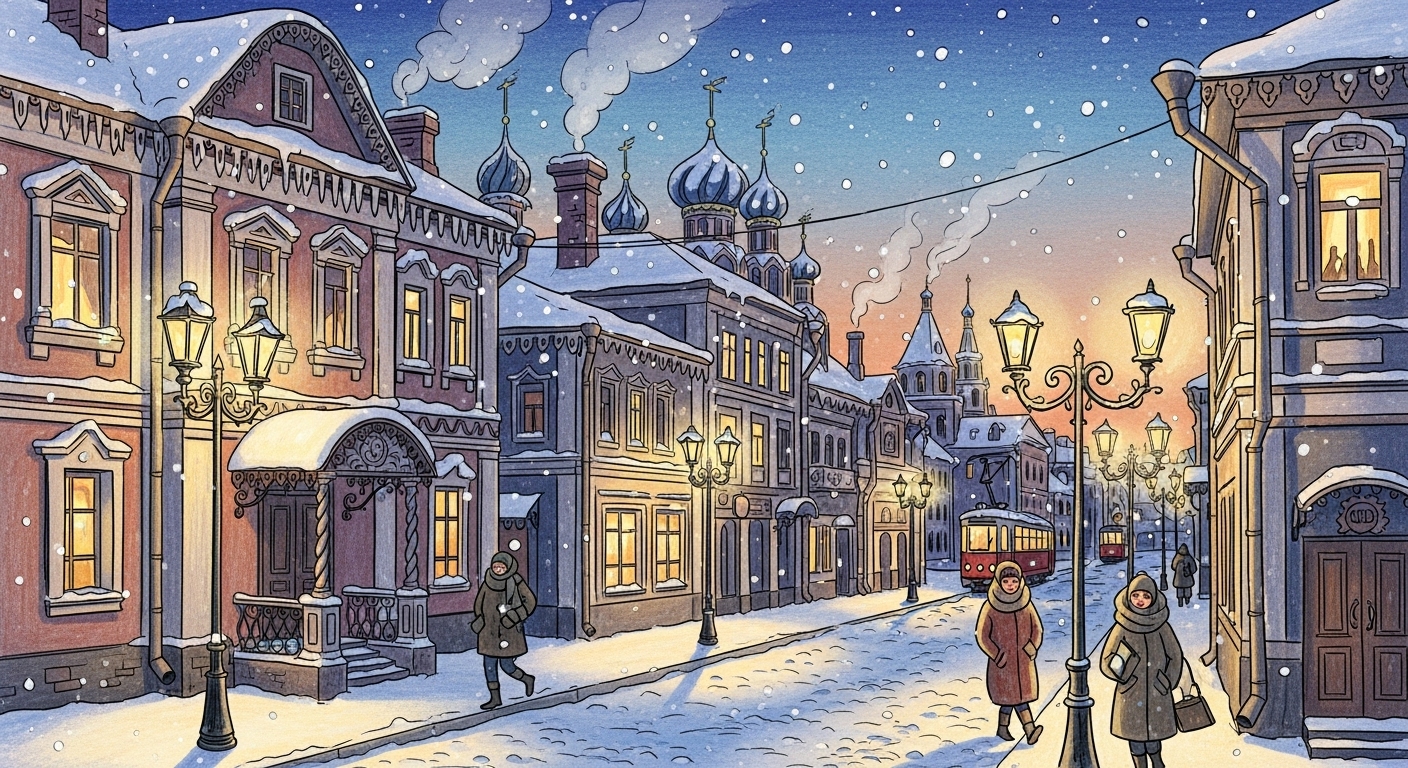
Every Russian Noun Has a Secret GPS. Here's How to Read It.
Stop getting lost in Russian grammar. Discover the simple mental model that turns confusing noun endings into a GPS, guiding you to build your first correct sentences.

Your Swedish Vocabulary Is in 'Read-Only' Mode. Here's How to Unlock Write Access.
Stuck at the A2 level in Swedish? You can read but can't write. This guide reveals why and offers a powerful cycle to activate the vocabulary you already know.

The 'Knowing' Problem in Italian: Your Guide to Nailing `Sapere` vs. `Conoscere` Every Time
Confuse 'sapere' and 'conoscere'? You're not alone. This guide breaks down the simple mental model to master them, and shows you how to practice until it's second nature.
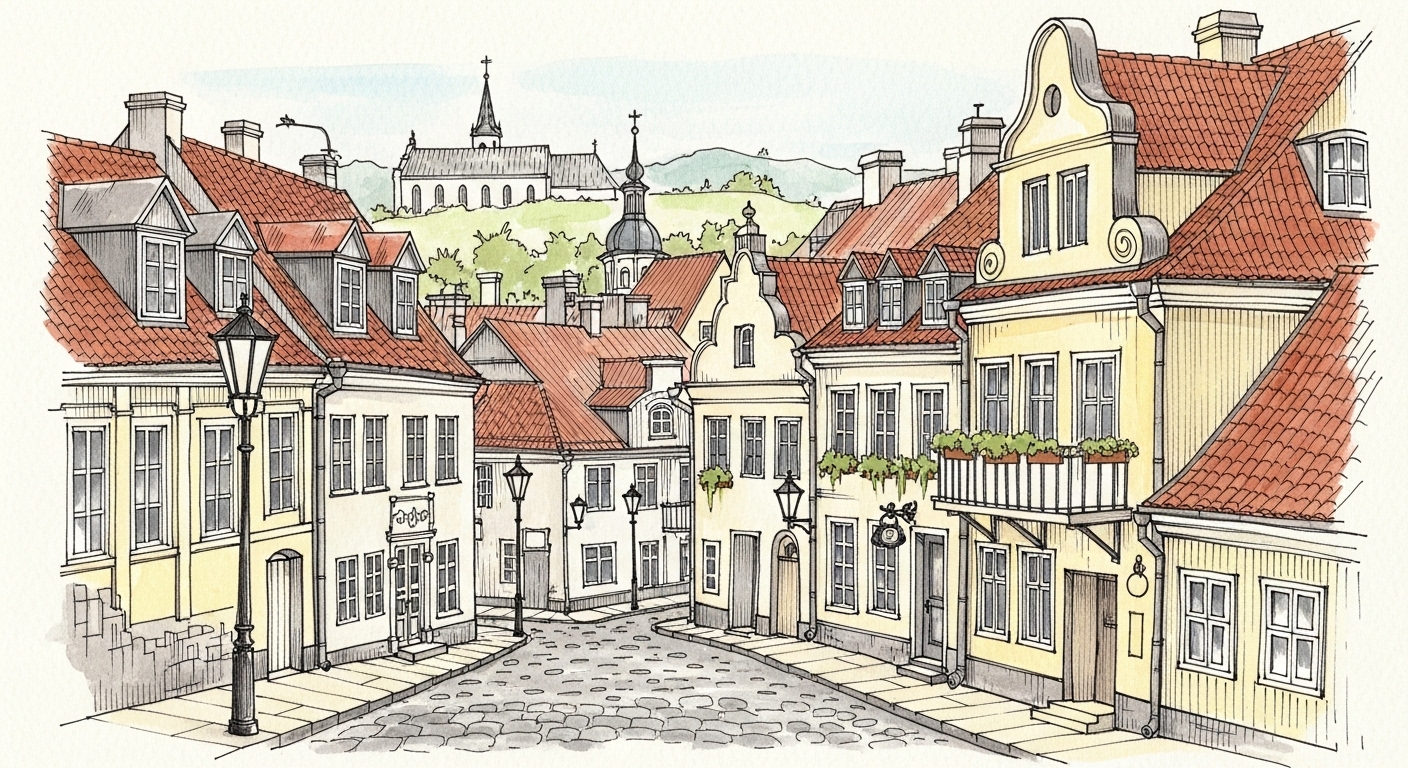
Your Lithuanian Is a Translation of Your Thoughts. Here’s How to Think Like a Native.
Stuck at the B2 level? Your Lithuanian might be grammatically correct but lacks native flow. Discover why 'thinking in English' is holding you back and learn a powerful cycle to start thinking like a Lithuanian.
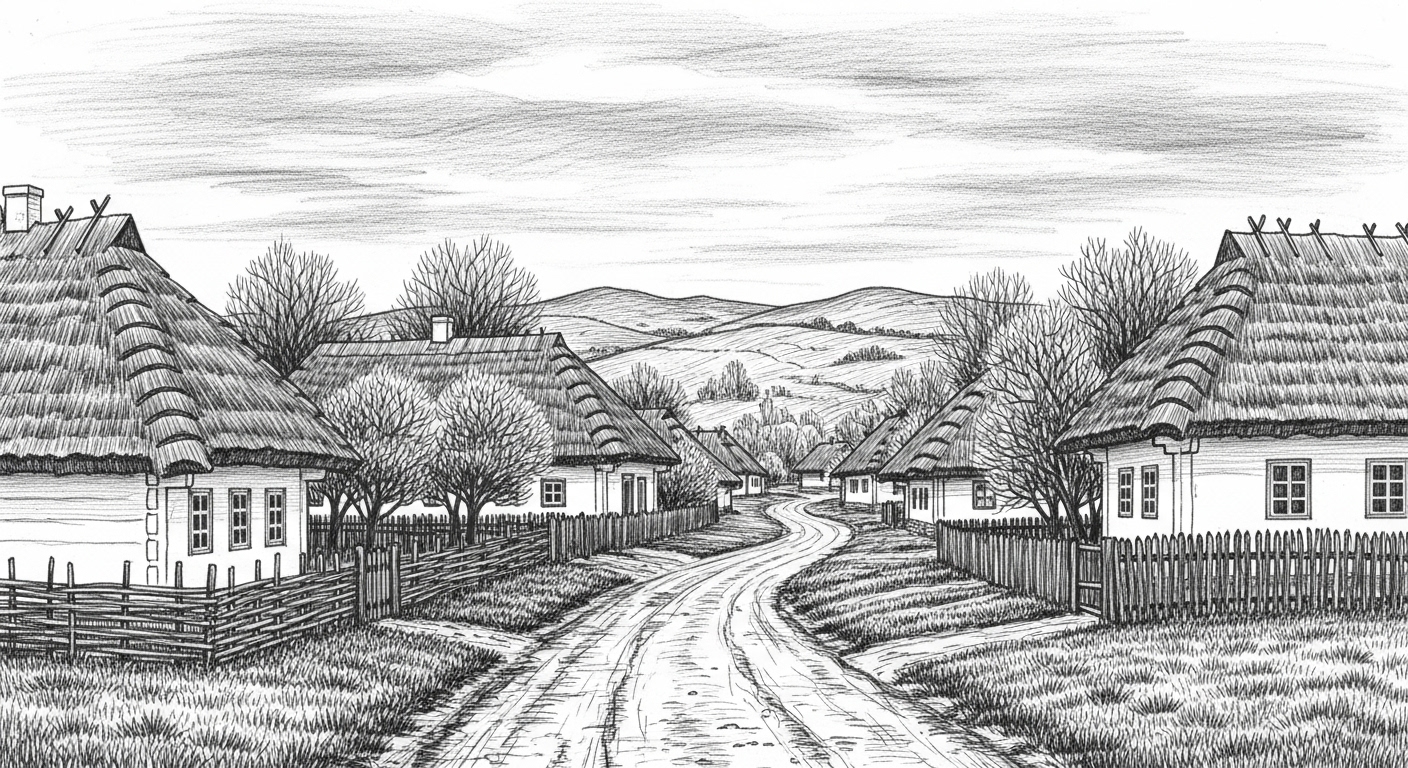
Your Ukrainian Vocabulary is Trapped in 'Read-Only' Mode. Here’s How to Unlock It.
You recognize thousands of Ukrainian words but can't use them. This is the passive-active vocabulary gap. Learn a 4-step cycle to finally start using the words you already know.

The Portuguese Reading-Writing Gap: Why You Understand a Novel But Can’t Write a Paragraph
Feel like your Portuguese reading skills are miles ahead of your writing? You're not alone. Discover the mental shift from 'consumer' to 'creator' and a proven cycle to finally close the gap.

Your Latvian Answers 'What' and 'Where'. Here's How to Answer 'How'.
Stuck describing your world in simple facts? Learn how to add the crucial 'how' to your Latvian sentences using tools, methods, and roles to make your writing come alive.
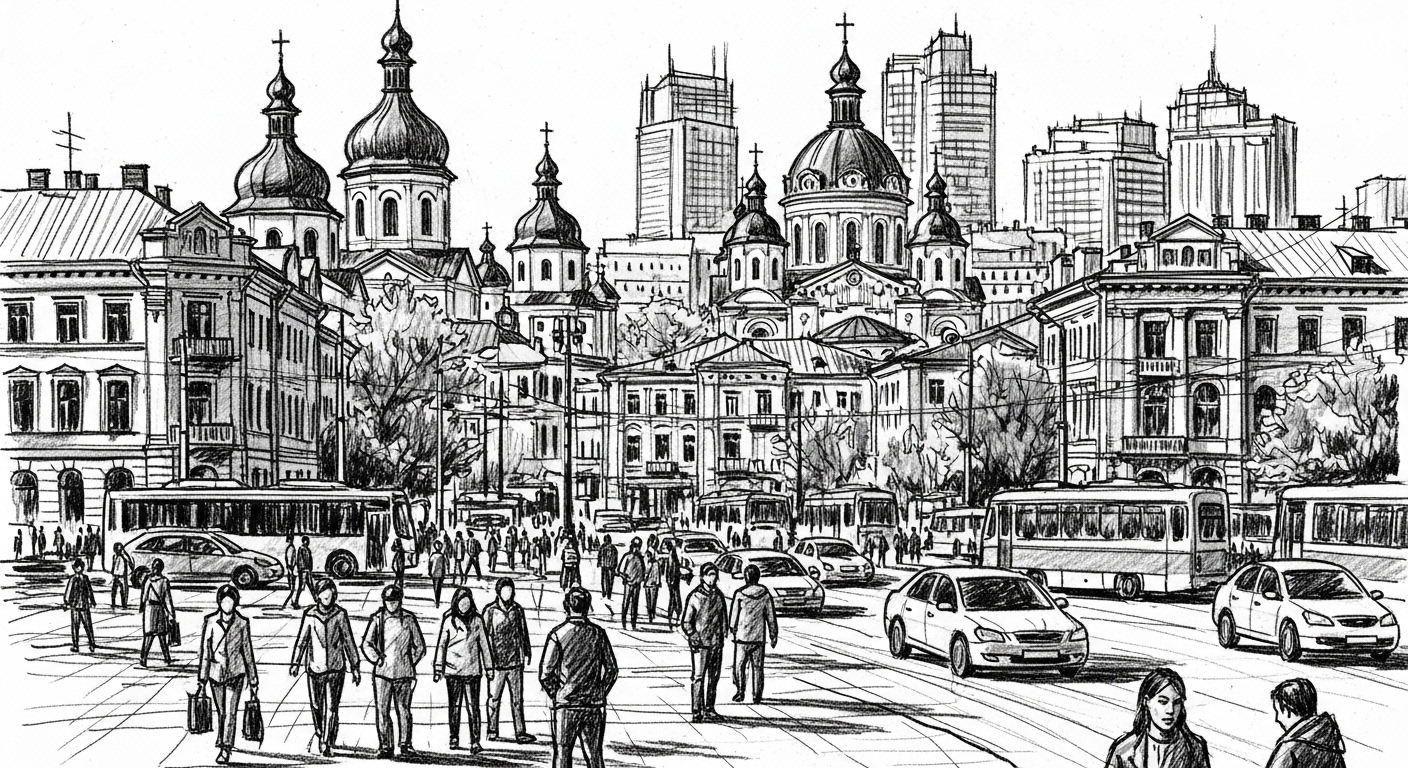
Your Ukrainian Is Stuck in Place. Here's How Verbs of Motion Set It Free.
Go beyond 'іти' and 'їхати'. This guide unlocks Ukrainian verbs of motion and their prefixes, transforming your flat descriptions into vivid stories of arrival, departure, and purpose.

The Russian Learner's 'Reading Trap': Why You Understand Words But Can't Write Sentences
Feel stuck in a cycle of reading Russian but being unable to write? Discover the 'Reading Trap' and learn a 3-step method to activate your vocabulary and start writing your first stories today.

Stop Memorizing 'Le' or 'La'. Absorb French Genders Naturally With This Method.
Tired of guessing French noun genders? Ditch the flashcards. Discover a context-based method to make 'le' and 'la' feel intuitive, not like a coin toss.

Your Latvian Vocabulary is a Pile of LEGOs. Here's How to Start Building.
Struggling to turn your Latvian words into sentences? Discover a simple 3-step cycle to go from passive reading to active writing and see how to finally build fluency.

Your Lithuanian Has No 'Owner's Manual': Mastering the Genitive Case
Confused by Lithuanian word endings like '-o' and '-os'? Discover the one grammar case that unlocks possession, description, and negation, and learn how to finally use it correctly in your writing.

Your English Vocabulary Is a Messy Drawer. Here's How to Organize It.
You learn new English words, but can't find them when you need them. Stop memorizing lists. Discover a simple method to organize vocabulary in your brain so you can finally use it.

Your Swedish Is Correct, But Sounds Like a Robot. Here's How to Add a Human Touch.
Stuck at the B2 level? Discover the secret Swedish 'flavor words' (ju, väl, nog) that separate fluent speakers from learners. Learn a method to master them and sound truly natural.

The Finnish Object Dilemma: When to Use 'Kirjaa' vs. 'Kirjan' (And Why It Changes Everything)
Struggling with Finnish objects? Learn the simple 'bounded vs. unbounded' rule that separates partitive ('kirjaa') from accusative ('kirjan') and transforms your writing from confusing to clear.

The 'Svůj' Trap: The Czech Word You Can't Learn With Flashcards (And How to Master It)
Confused by Czech possessives like 'můj' vs. 'svůj'? You're not alone. This guide breaks down the simple rule flashcards can't teach you and a method to finally master it.

Your Latvian is Correct, But is it Natural? A Guide to Tricky Word Pairs
Stop mixing up 'liels' and 'augsts'! This guide breaks down common confusing Latvian words and shows you a method to finally master their context and sound natural.

Your Russian Vocabulary is a Graveyard. Here's How to Bring It to Life.
Stop memorizing isolated Russian words you can't use. Discover why context is the key to fluency and learn a practical cycle to turn dead vocabulary into living sentences.

Beyond Case Charts: How to Make Serbian Grammar an Instinct, Not a Calculation
Tired of mentally juggling Serbian cases? Discover a 3-step method to move from slow calculation to intuitive fluency. It's time to make grammar feel natural.
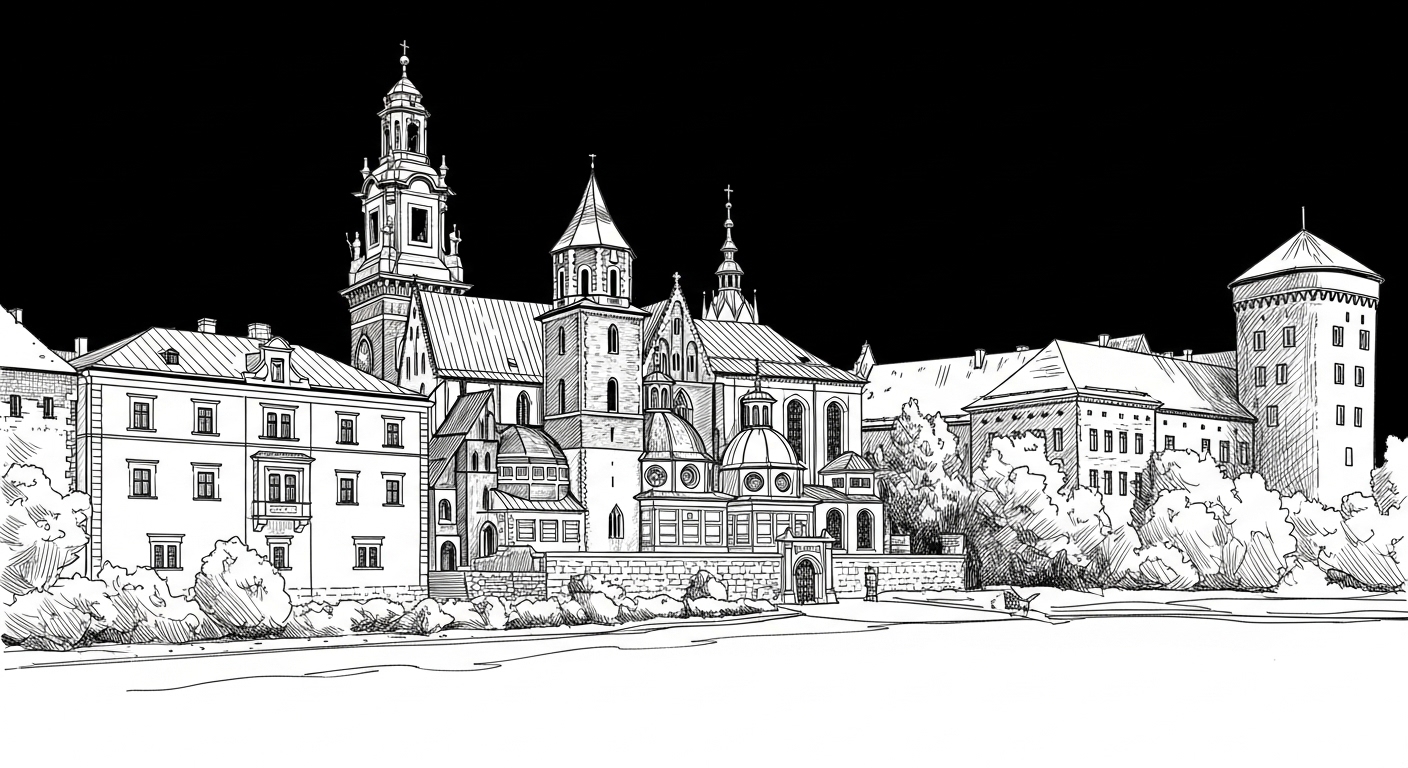
Your Polish Nouns and Adjectives Aren't Talking. Here’s How to Introduce Them.
Stuck describing the world with simple nouns? Learn the 3-step method to make Polish adjectives agree with nouns and start writing more expressive, colorful sentences today.

Your Russian Vocabulary is Correct, But is it Nuanced? The B2 Word Choice Guide
You know the words, but do you know the *right* words? This guide helps B2 Russian learners master the subtle art of word choice to sound more natural and sophisticated.
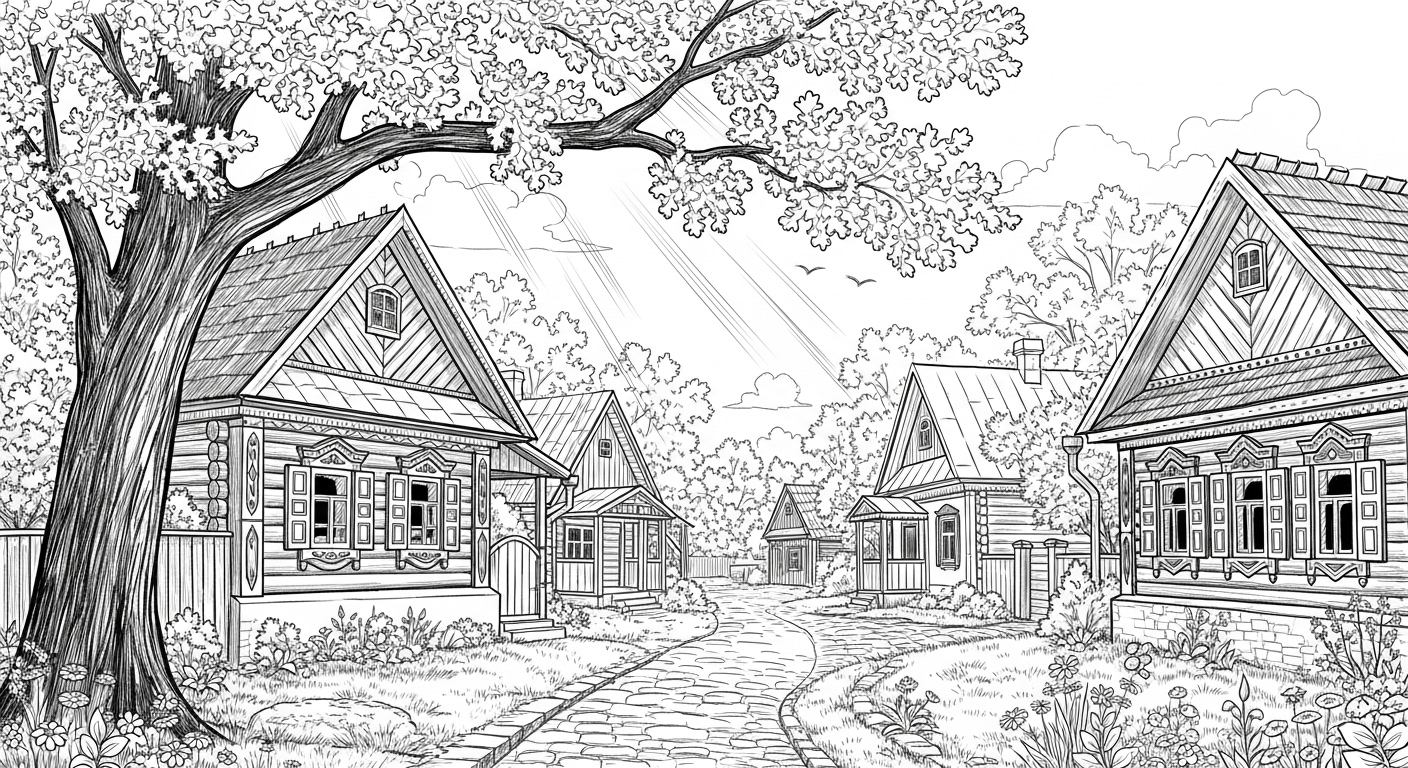
From Words to Sentences: A Beginner’s Guide to Building Your First Ukrainian Sentences
Know Ukrainian words but can't form a sentence? This guide breaks down the #1 rule for A1 learners to start writing. Stop memorizing, start creating.

Stop Memorizing English Phrasal Verbs. Do This Instead.
Tired of mixing up 'get up' and 'get over'? Learn a powerful 3-step cycle to master phrasal verbs by using them in real stories, not boring lists.
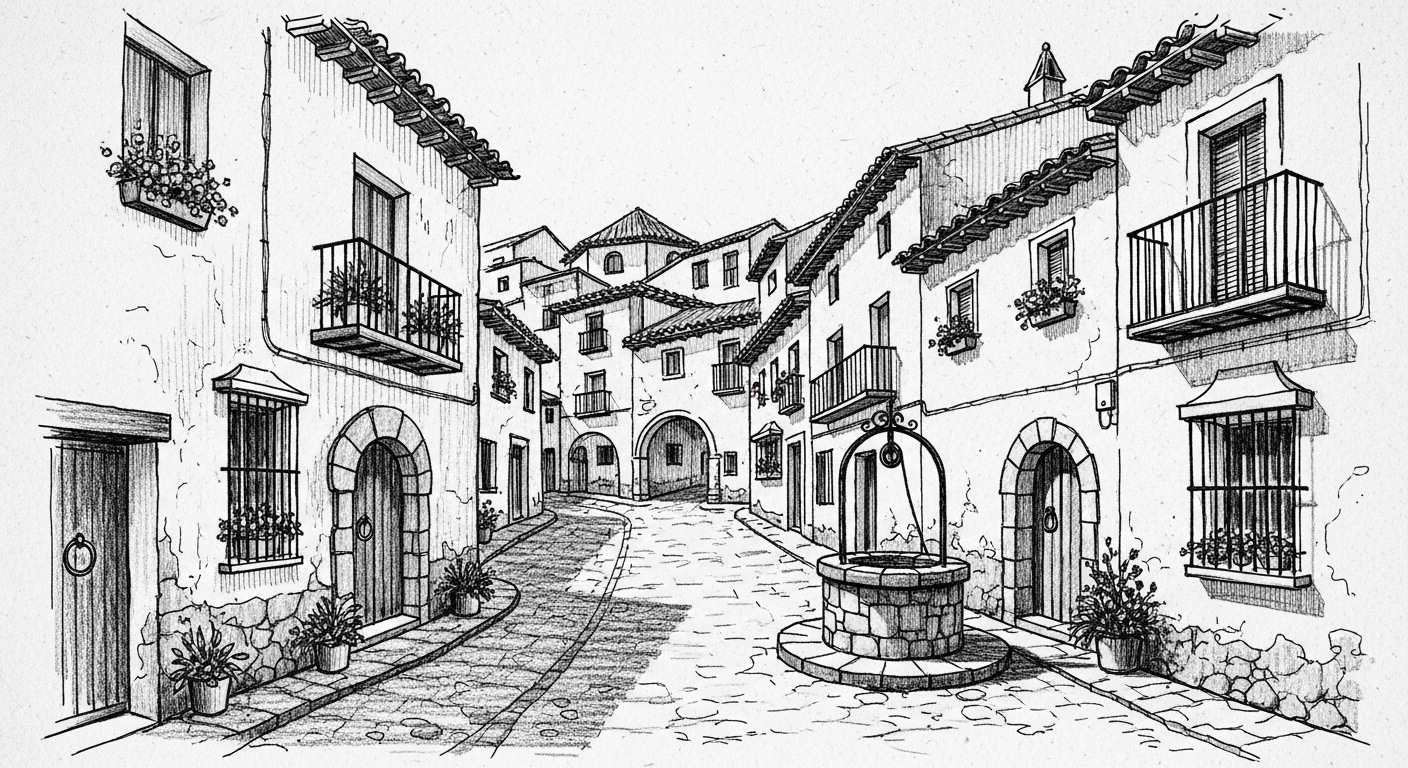
The Soul of Your Spanish Sentence: How ‘Ser’ vs. ‘Estar’ Changes Everything
Stop memorizing rules for 'ser' vs. 'estar'. Learn the single mental model that unlocks their true meaning and transforms your Spanish from robotic to natural. This is the key to descriptive storytelling.

Your Lithuanian Verbs Are Stuck in First Gear. Here's How to Fix It.
Tired of using basic Lithuanian verbs like 'eiti' and 'daryti'? Discover how a simple trick with verb prefixes can unlock a new level of fluency and expression.

The Finnish Case System Is Not Your Enemy: A Beginner’s Guide to Thinking in Finnish
Feeling overwhelmed by Finnish cases? Discover a new way to think about them not as grammar rules, but as answers to simple questions. Learn to write your first stories with confidence.

Your Armenian Vocabulary is Trapped. Here’s How to Set It Free.
You've memorized Armenian words, but can't use them in sentences. Discover why this happens and learn a practical method to activate your vocabulary and start writing.

Beyond 'Oi' and 'Obrigado': A Beginner's Guide to Telling Your First Story in Portuguese
Stuck with single Portuguese words? Learn the simple 3-step method to connect them into sentences and stories. Turn your vocabulary lists into real communication.

The Luxembourgish Sentence Upgrade: One Rule to Stop Sounding Like a Robot
Tired of short, choppy sentences in Luxembourgish? Discover the 'verb-kick' rule for conjunctions like 'well' and 'datt' to connect your ideas and write with confidence.

Building Bridges in Armenian: From Simple Sentences to Fluent Stories
Feeling like your Armenian is stuck in short, choppy sentences? Learn the key 'connector' words that will transform your writing and help you tell compelling stories.

The Secret Rhythm of Luxembourgish: Master Word Order Without Memorizing Rules
Struggling with Luxembourgish sentence structure? Discover the simple 'V2' and 'Verb-Final' rules that govern every sentence, and learn how to practice them effectively until they become second nature.

From ‘Ciao’ to Storyteller: A Beginner’s Guide to Writing Your First Italian Paragraphs
Stuck with single Italian words? Learn a simple framework to build your first sentences and stories, and discover the tools to get feedback and learn faster.

The Secret to Sounding Latvian: Why Verb Prefixes are Your B2 Breakthrough
Struggling with Latvian verbs like 'aiziet' vs. 'ieiet'? This guide breaks down the system of prefixes (priekšdēkļi), moving you beyond memorization to true understanding and fluency.
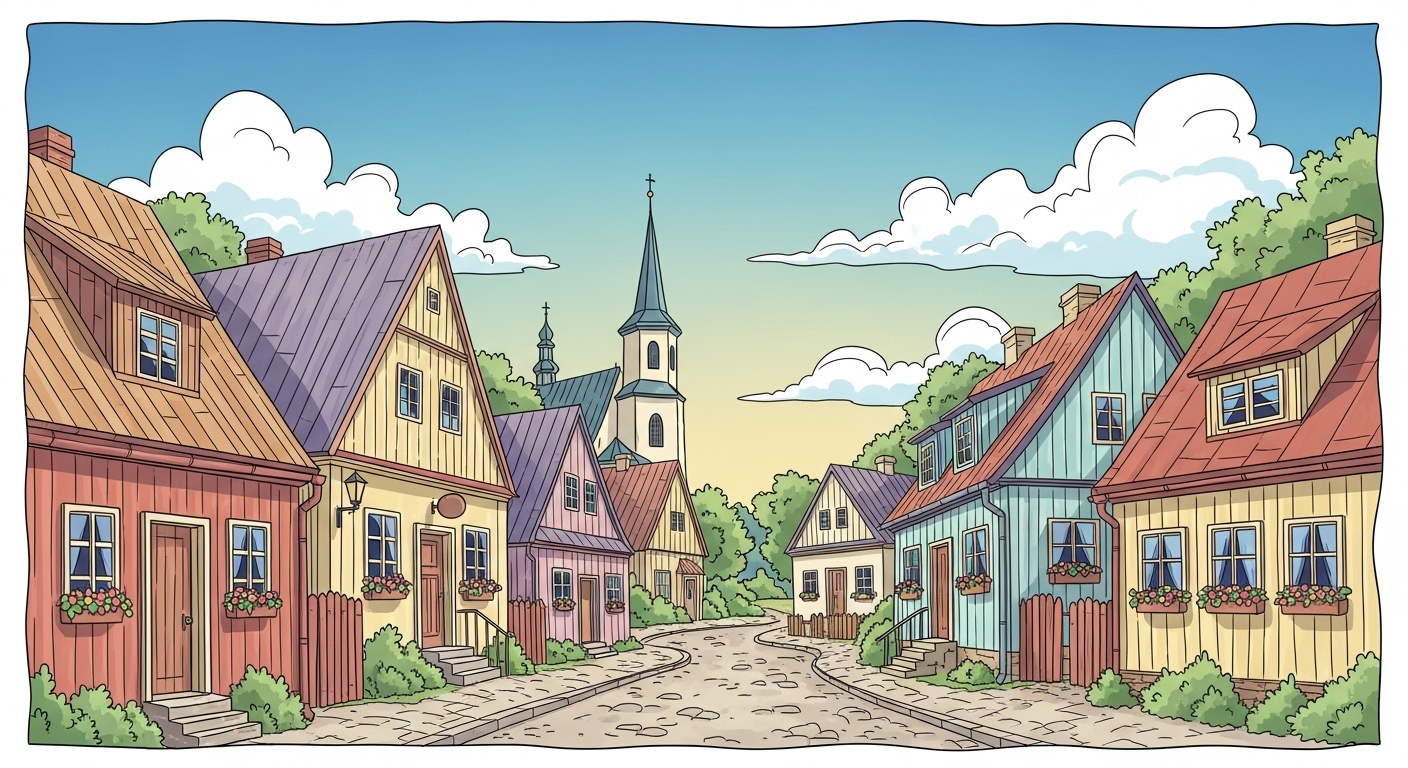
Conquering Polish Verbs of Motion: A B2 Learner's Survival Guide
Struggling with when to use iść, chodzić, jechać, or jeździć? This guide breaks down Polish verbs of motion with clear examples and a powerful method to master them.

Stop Translating in Your Head: A Practical Guide to Thinking in German
Stuck at the B2 level? Learn the mental shift from translating to narrating. This guide offers a practical method to start thinking in German and writing more naturally.

Cracking the Czech Code: A Beginner’s Guide to Mastering the 7 Cases
Struggling with Czech grammar cases like genitive or locative? Discover why memorizing charts fails and how learning through stories can make it finally click. Your guide to thinking in Czech.
Page 1
109 total posts